*NEW* 11 DAYS IRAQ HERITAGE: THE CRADLE OF CIVILISATION (05 – 15 Nov 2025) *Confirmed Departure*
BASRA, NASIRIYAH, UR, NAJAF, BABYLON, BAGHDAD, MOSUL, DUHOK, LALISH, ERBIL
History & Culture, Off the Beaten
Iraq, a land of ancient heritage, invites travellers to uncover its rich and storied past. With over 7,000 years of history, this cradle of civilisation has shaped the world through groundbreaking cultural, scientific and philosophical innovations—from the invention of writing to the rise of sophisticated governance, the flourishing of Islamic Golden Age scholarship, and the creation of iconic architectural wonders.
Embark on a journey through Iraq’s most captivating destinations, from the vibrant city of Basra and the mystical Marshes to the bustling capital city of Baghdad and the Kurdish city of Erbil. Explore the remnants of ancient civilisations at the National Museum of Iraq, stand before the awe-inspiring Ziggurat of Ur, and experience the traditions of the Marsh Arabs and Kurdish communities. Thoughtfully designed for deep cultural immersion, our Intriq Signatures tour offers exclusive insights into Iraq’s enduring legacy, resilience, and warm hospitality.
Double Occupancy: HK$ 65,880 per person
Single Supplement: HK$ 16,350 per person
Early Bird Offer
First 3 bookings with deposit (limit to 3 rooms) will get a complimentary upgrade to a River View Room with Balcony at Babylon Rotana in Baghdad for 3 nights
Deposit Amount
20% deposit at sign up
*Registration Closing Date
19 Sep 2025 or when tour is fully subscribed
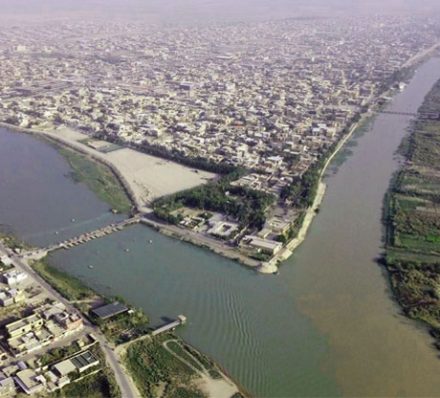
Arrive in Basra, a port city in Southern Iraq which played an important role as a regional hub of trade and commerce in the Islamic Golden Age, that offers unique insight into both ancient and modern Iraqi life.
Transfer to your hotel for a good night’s rest after your long flight.
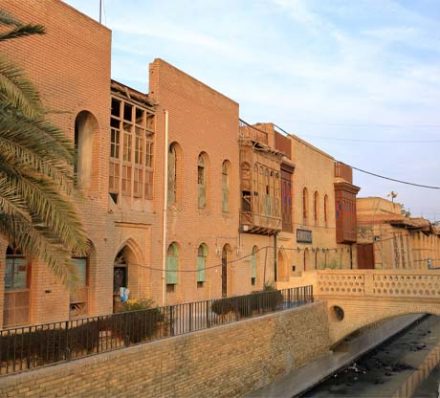
Begin your day at the intimate and welcoming Basra Museum, housed in a former palace of Saddam Hussein. Its collection offers a fascinating glimpse into Mesopotamian, Babylonian, and Persian civilizations, alongside the rich history of Basra itself.
Next, explore the old city, once celebrated as the “Venice of the East” for its elegant Ottoman Shenashil Houses—traditional 19th-century residences lining the canals. Step inside a rare surviving villa once owned by a wealthy Greek merchant, a window into Basra’s storied past.
After lunch, take a leisurely stroll along the Basra Corniche before setting out on a 20-minute boat ride along the Shatt Al-Arab. Formed by the confluence of the Tigris and Euphrates rivers, this vital waterway was once a key Silk Road trade route and remains crucial today, with much of the world’s oil passing through its waters.
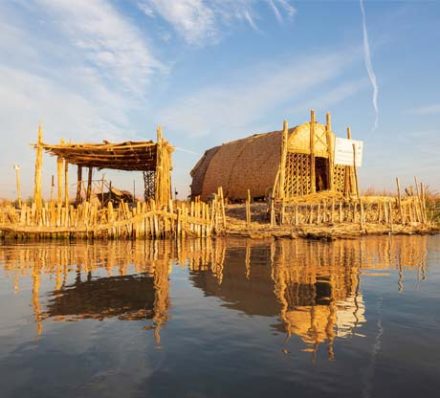
This morning, we drive to the ancient Mesopotamian town of Al-Qurnah (approx. 1.5 hours, 86 km). Arriving at Al Multaqa, the confluence of the Tigris and Euphrates rivers—known locally as the Dijla and Al-Furat—you will visit the shrine of Cidra el Muntaha (the Tree of Knowledge), believed to be the very tree whose forbidden fruit led to Adam and Eve’s expulsion from the Garden of Eden.
Continue your journey to the Mesopotamian Marshes, pausing near a model mudhif—a traditional reed house unique to this wetland region. These remarkable structures date back to the ancient Sumerians as early as 4500 BCE and are even referenced in The Epic of Gilgamesh.
After lunch, embark on a private Shakhtura boat ride, gliding through the tranquil waterways of this extraordinary ecosystem. The marshes provide a vital habitat for egrets, kingfishers, and herons, while also serving as the home of the Marsh Arabs, or Ma’dan. Descended from the Sumerians, these communities have cultivated a way of life intricately woven with the rhythms of the wetlands for over 5,000 years, shaping distinctive traditions, architecture, and culture.
In the late afternoon, your 133km (2-hour) drive through the scarred landscapes of southern Iraq offers a poignant reflection on the region’s turbulent history.
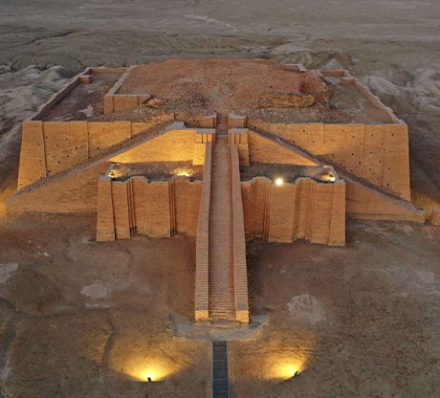
Often referred to as Iraq’s answer to the pyramids, the Ziggurat of Ur stands as a testament to the grandeur of this once-thriving Sumerian metropolis. Though inhabited since prehistoric times, Ur rose to prominence in the 27th century BCE, flourishing as a powerful city-state. Its decline, shaped by political shifts, prolonged drought, and the shifting course of the Euphrates River, was further hastened by the rise of the Achaemenid Empire. By the early 5th century BCE, Ur was likely abandoned—only to be rediscovered nearly 1,300 years later by Victorian-era British archaeologists.
Drive 2 hours (98km) to Uruk, often hailed as “the world’s first city”. Inhabited since 4000 BCE, Uruk is the birthplace of the earliest known forms of writing and is deeply linked to the epic tale of Gilgamesh, the legendary Sumerian king. The city’s ruins reveal a sprawling ancient complex, featuring a grand ziggurat, as well as remnants of temples and palaces that once stood at the heart of early civilisation.
Note: In the event of heavy rain, Uruk may not be accessible.
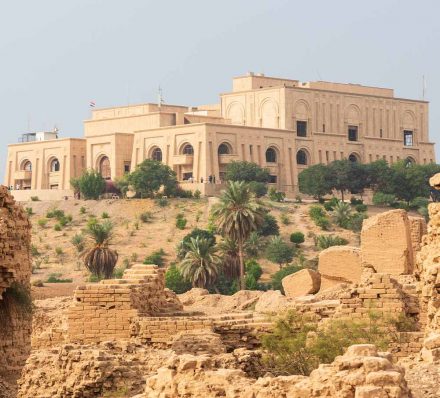
This morning, embark on a 1.5-hour drive (77km) to Babylon, the legendary capital of the Babylonian Empire. Though best known for King Hammurabi’s legal reforms in the 18th century BCE, Babylon reached its greatest flourish in the 6th century BCE under Nebuchadnezzar II, whose grand vision shaped the city’s iconic urban landscape.
The former palace of Saddam Hussein now stands as a haunting edifice of broken windows, stripped fixtures, and graffiti. Looted to the last lightbulb, first by American troops and later by scavengers, it remains an eerie relic of a bygone era. While it is unclear whether Saddam ever set foot in this palace, it is said that he ordered his staff to prepare three meals daily—just in case he decided to drop by.
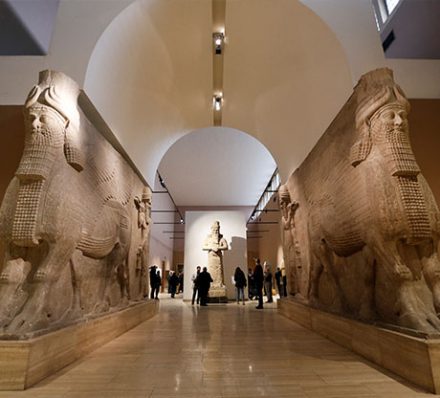
The Iraqi National Museum contains a breathtaking collection of treasures from Sumer, Assyria, ancient Persia, and various Islamic traditions. An estimated 15,000 artifacts were stolen when the museum was looted during the American invasion. After reopening to the public in 2015, the museum has begun to reassert itself among the world’s great collections of antiquity.
Al-Kadhimiya is said to be one of the oldest towns in Iraq. Prior to the construction of Baghdad, Al-Kadhimiya was known as Shoneezi, an Arabic name meaning “Black Grain.” When the Abbasid Caliph Abu Ja’far Al-Mansour began construction of the Round City of Baghdad in 762 AD, Al-Kadhimiya already held historical significance. Visit the Al-Kadhimiya Holy Shrine (Golden Dome) and marvel at its four golden minarets.
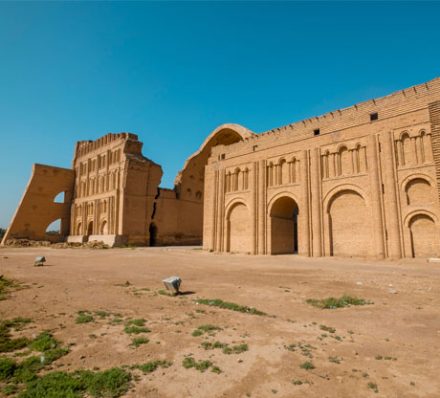
This morning, depart for a short boat ride across the Tigris River to Al-Mutanabbi Street. Stretch your legs on a walking tour through Old Baghdad. Named after a 10th-century Iraqi poet, Al-Mutanabbi Street was long considered the intellectual heart of Baghdad. End your walk at Shabandar Cafe, a historic establishment at the end of Al-Mutanabbi Street. The cafe has become a hub of Baghdad’s intellectual life, drawing poets and politicians to its wooden benches and photo-lined walls.
Visit Ctesiphon (Taq Kasra), which served as the winter capital of the Parthian Empire and later the Sāsānian Empire. The iconic Arch of Ctesiphon remains one of the most impressive surviving structures of the ancient world. The city was a vital center for trade along the Silk Road, where caravans from China would unload their goods, which were then ferried across the Tigris to Seleucia.
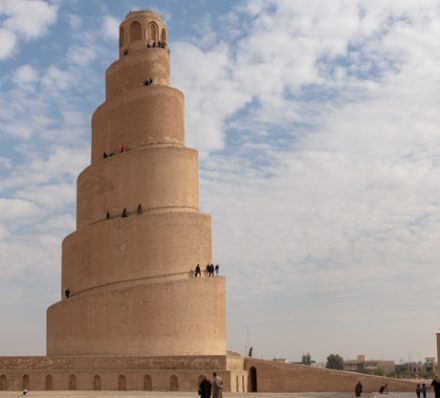
Samarra Archaeological City
In medieval times, Samarra was the capital of the Abbasid Caliphate and is the only remaining Islamic capital that retains its original plan, architecture, and artistic relics. The Great Mosque, also known as the Malwiyya Mosque, was destroyed in 1278 by Hulagu Khan (grandson of Genghis Khan), leaving only its outer wall and iconic spiral minaret. The Malwiyya minaret rises more than 150 feet into the air and is considered an architectural masterpiece.
The ancient city of Assur, a UNESCO World Heritage Site, is located on the Tigris River and dates back to the 3rd millennium BCE. From the 14th to the 9th centuries BCE, it served as the first capital of the Assyrian Empire, functioning as both a city-state and a vital trading hub of international importance. Assur was also the religious capital of the Assyrians, deeply connected to the worship of the god Ashur.
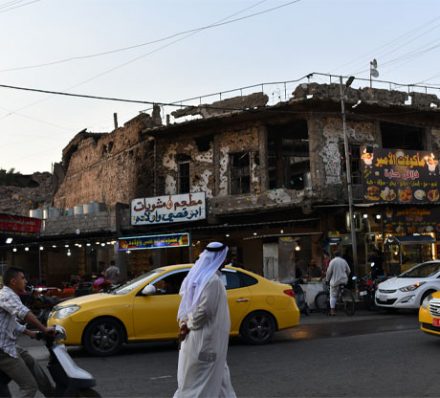
Nineveh, the once-flourishing capital of the Assyrian Empire, has captivated writers, travelers, and historians since its complete destruction by allied forces—including the Babylonians, Medes, Persians, Scythians, and Cimmerians—in 612 BCE. Once a grand and populous city, Nineveh was famed for its 90-km-long walls, magnificent palaces, and colossal statues, some said to be made of pure gold.
Explore the Old City of Mosul, one of the oldest neighborhoods in the Middle East. Founded atop an Assyrian fortress, Mosul has been inhabited for at least 8,000 years. Historically, it was part of the Assyrian civilization and even served as its capital for a time. In recent history, the Old City suffered extensive damage during the conflict with ISIS, which had established its last stronghold there. The area was heavily bombarded, leading to the destruction of many centuries-old buildings. Today, a walk through the Old City offers a glimpse into the resilience and determination of the Iraqi people as they work to rebuild and restore their cultural heritage.
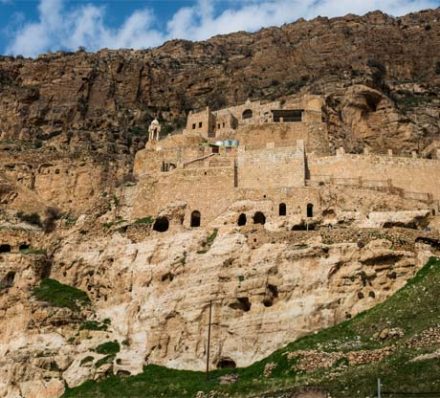
Embark on a tour of Lalish, the spiritual heart of the Yazidi people and the most sacred town for the Yazidi religion. During your visit, meet local Yazidis and gain insight into their unique beliefs, customs, and the community’s resilience following the dark chapter of persecution under ISIS.
Explore the ancient Khinis site, also known as Bavian, renowned for its remarkable rock reliefs commissioned by King Sennacherib around 690 BCE to celebrate the construction of a complex canal system designed to supply water to Nineveh, the Assyrian Empire’s capital. The intricate reliefs and tombs- many carved directly into the cliff face, stand as some of the finest examples of ancient rock art, their majesty still evident today.
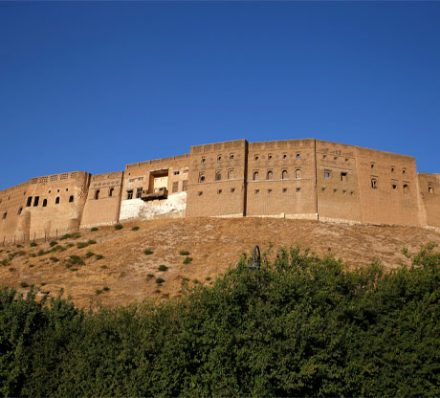
Erbil Citadel is a fortified settlement perched atop an imposing ovoid-shaped tell (a hill formed by generations of continuous habitation) in the Kurdistan region’s Erbil Governorate. A continuous wall of tall 19th-century façades still gives the impression of an impregnable fortress, dominating the city of Erbil. You’ll also explore the local food market and stroll through the bustling Qaysai Bazaar, where you can buy everything from spices to handicrafts. The nearby minaret was built between 1190 and 1232.
After dinner, you will be transferred to the airport for your departure flight. (Guaranteed late check-out)
Grand Millennium Al Seef Basra • Somerion Hotel • Granada Hotel • Babylon Rotana • Modern Palace International Hotel • Hotel King Rixos Duhok • Erbil Rotana
Qatar Airways
05 Nov, Hong Kong- Doha (QR 815), 00:25 – 04:50
05 Nov, Doha – Basra (QR 448), 08:20 – 10:00
15 Nov, Erbil – Doha (QR 451), 22:00 – 00:25
16 Nov, Doha – Hong Kong (QR 818), 02:25 – 14:50
We recommend arriving on/before and departing on/after the recommended flight times to fully participate in this journey.
Registration Closing Date: 19 Sep 2025 or when tour is fully subscribed
Kindly call us at (852) 2885 2181 if you require any immediate assistance.
Personal Particulars
GET STARTED WITH YOUR PERSONALISED UNIQUE JOURNEY
Call us at +852 2885 2181 or email us at enquiry@intriqjourney.com to start planning for a holiday that is completely tailored to your preferences.
Contact Us